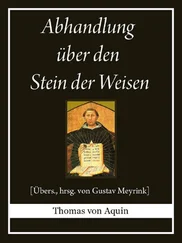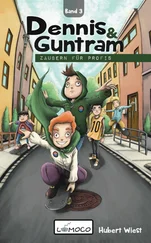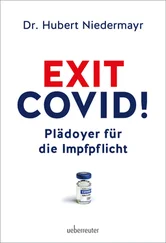Hubert Aquin - Next Episode
Здесь есть возможность читать онлайн «Hubert Aquin - Next Episode» весь текст электронной книги совершенно бесплатно (целиком полную версию без сокращений). В некоторых случаях можно слушать аудио, скачать через торрент в формате fb2 и присутствует краткое содержание. Год выпуска: 2001, ISBN: 2001, Издательство: McClelland & Stewart, Жанр: Современная проза, на английском языке. Описание произведения, (предисловие) а так же отзывы посетителей доступны на портале библиотеки ЛибКат.
- Название:Next Episode
- Автор:
- Издательство:McClelland & Stewart
- Жанр:
- Год:2001
- ISBN:9781551996240
- Рейтинг книги:3 / 5. Голосов: 1
-
Избранное:Добавить в избранное
- Отзывы:
-
Ваша оценка:
- 60
- 1
- 2
- 3
- 4
- 5
Next Episode: краткое содержание, описание и аннотация
Предлагаем к чтению аннотацию, описание, краткое содержание или предисловие (зависит от того, что написал сам автор книги «Next Episode»). Если вы не нашли необходимую информацию о книге — напишите в комментариях, мы постараемся отыскать её.
is a disturbing and yet deeply moving novel of dissent and distress. As he awaits trial, a young separatist writes an espionage story in the psychiatric ward of the Montreal prison where he has been detained. Sheila Fischman’s bold new translation captures the pulsating life of Aquin’s complex exploration of the political realities of contemporary Quebec.
Next Episode — читать онлайн бесплатно полную книгу (весь текст) целиком
Ниже представлен текст книги, разбитый по страницам. Система сохранения места последней прочитанной страницы, позволяет с удобством читать онлайн бесплатно книгу «Next Episode», без необходимости каждый раз заново искать на чём Вы остановились. Поставьте закладку, и сможете в любой момент перейти на страницу, на которой закончили чтение.
Интервал:
Закладка:
He’s here! The muffled humming of a car, the crunch of gravel in the entrance — it’s him! From my surveillance point behind the peep-hole, I can make out the rear end of a grey car with a Zurich plate. In fact, I’ve arrived too late to see the car drive onto the chateau grounds, but never mind. This is not the time to start questioning everything. I swing into action; I cross the vestibule to get back to my point of attack. I squeeze the butt of the revolver in my belt. And now I am leaning against the cold wall of the chateau, my shoulder level with a bunch of grapes carved in high relief on the credenza which hides me completely. Soon H. de Heutz will open the Dutch door. On my right I see the garage door that will give me instant access to the instrument of my escape. The time has come. No sound yet to indicate that H. de Heutz is at the porch. I hear absolutely nothing, and I’m not indifferent to that. I should have put my ear against the keyhole: then I could have heard what was going on outside; perhaps I’d have even been able to tilt the upper half of the door to hear clearly the premonitory sounds of the enemy bursting into the range of my weapon. But I’ve stopped moving. My fingertips are icy from the frantic throbbing of blood in my temples. Not a single movement or sound, not even that of my own breathing. All is silence. Expectation keeps me shuddering and upright. Very slowly I take the 45 from its improvised holster. Moving precisely, I bring it up to my chest, the barrel pointed at the antique wooden grapes. I release the safety and now I just have to wait a few more seconds. I have no intention of trying to stay hidden to fire at H. de Heutz, for my position behind the credenza doesn’t guarantee effectiveness. I’ll spring from my hiding place and take advantage of his surprise to solidify my attack position, steadying my armed hand with my outstretched left fist held perfectly parallel to my shooting arm. Ultimately, I’ll have to concentrate on my aim, think of nothing but my target, and not worry about fending off a counter-strike that H. de Heutz won’t have time for.
But what can he be doing now? He’s had more than enough time to get from the grey car to the door but I’ve heard nothing. It’s too late to cross the vestibule again and take a look outside. If he were to catch me, I’d be thrown off balance, having lost the few fractions of a second that secure my advantage and without which I’d be much less certain that my aim was accurate. I have no second choice, ever since I’ve delimited this battlefield after analyzing the structure of the space. What time is it? All at once the air moves! He’s inside, but he hasn’t closed the door. He takes two steps. He still hasn’t shut the door; maybe he’s waiting for the other person. But why is he stopping? The crystalline ring of the telephone reassures me. Nothing has happened between us yet. As long as he’s on the phone, H. de Heutz won’t budge. If the other person doesn’t answer, I’ll make my move.
“Hello, is that you, my love? I’ve just arrived. It’s been an unbelievable day … You can’t imagine; I’ll tell you all about it later. What about you, any news?… You think I can trust him?… No, I’ve never seen him, I’m sure I haven’t. You know, I’d like to meet you and finalize this whole business, do you understand?… This evening then, soon: the time it will take me to get there. Let’s say half-past six on the terrace of the Hôtel d’Angleterre … But I absolutely have to see you: it’s urgent. I’m sure you can put off the other one or deal with it in a few minutes … Look: I’ll take a table near the orchestra, in any case he doesn’t know me. When you’re finished with him, you can join me … You have to understand. I can’t take any more, my love. This whole business is turning out very badly for me. I’m afraid; yes, I fear the worst … I absolutely have to see you later on … Look: above all, don’t forget the colour of the paper and the code, do you understand? You’ll find it in Stoffel’s account of the battle of Uxellodunum on page 218 … Now tell me: where are the children?”
16
THEN, NOTHING. The voice deepens in my memory while the wind from the Vaud blows in my hair and I wander alone around the Château d’Ouchy. Under the dark water of the lake, my near east is flowing towards the Montreal Prison. I linger on the enchanted shore. I look at the tiered streets of Lausanne that we covered from top to bottom one night, strolling from Place de la Riponne to the Quai d’Ouchy, down the paved rue des Escaliers-du-Marché that winds its way along one of the dried-up arms of the Thièle. The city is all lit up now; the other night its lights were doused in the augural dawn that poured from our bed. The Château d’Echandens is obliterated in the dark water as I stroll for the thousandth time along the terrace of the Hôtel d’Angleterre. Little happened between my departure from H. de Heutz’s chateau and my arrival on the terrace of the Hôtel d’Angleterre, but late for my meeting with K. She’d gone. Now it is growing dark; an orchestra at the end of the terrace attacks the first chords of “Desafinado.” Groups of passersby stand on the sidewalk listening. I should add that the terrace is full to overflowing with customers. Once again I go up to some tables and look at all the faces, but they tell me nothing. K isn’t there, but I go back all the same, you never know, she might return. “Desafinado” makes me face up to the cruel facts: I’ve lost my love! And I don’t even know how to retrace her in Switzerland: perhaps she was due to leave tonight for Berne or Zurich. How can I reach her? I don’t know her cover or that of her office. I stand there in a daze, staring sadly at this carefree crowd and all the lovers whose knees brush under the tables: they have been able to find one another. There are a good many. I can’t help but see a wonderful beauty in them, merely because they’re together, whereas I’ve come here too late to meet the woman I held in my arms yesterday, as day was dawning behind the closed shutters that look out on the orchestra and the whole valley of the Rhône. Yes, it was in the room I’m gazing at now that we loved each other. And it was marvellous! K, naked and warm and lying beside me … Truly, we were beautiful, joined together, reunited at last after so many misunderstandings and wasted months. I’ve loved other women in the past, I’ve thought I loved them, but all my memories have merged in K’s blazing belly.
I stand near the terrace, my back to the Savoyard Alps that are displaced in the shadows, and I know that I’ve lost the woman I love. I have lived to meet her and I’m now dying pointlessly of love. Where are you, my love? Why did we separate after the incandescent dawn that burst from our embrace? Why, on the shore of the deferred lake, did we reinvent this revolution that broke us and then reunited us, that seems impossible to me this evening while I stand watch in this haunted crowd and the orchestra plays “Desafinado”? The underground revolution is breaking us once again in the depths of our exile here on the terrace of the Hôtel d’Angleterre that I love and where I live to infinity, like the poet who died at Missolonghi. You are so beautiful, my love, truly more beautiful than any of the women I stare at now, methodically. Your beauty bursts with power and joy. Your naked body tells me again that I was born for real life and that when I love, I desire frantically. Your blonde hair is like the dark river that flows at my back and surrounds me. I love you the way you appeared to me the other night when I was walking towards Place de la Riponne, complete and invincible, and I love you when you’re tumultuous, when you cry out our pleasure. I love you draped in black or scarlet, dressed in saffron, veiled in white, clad in words and transfigured by the dark shock of our two bodies. The wind from the Vaud that delicately tangles your blonde hair brings me the perfume of your flesh, but where are you? Does this secret wind come from the lake or from the hot plain of Echandens I’ve just come from, but too late? Ah, now that I’ve lost you, I’m delirious. I feel that I’m brushing against your damp flesh, that I’m drunk with your secret odour. I remember a long-distance call I made from the Lord Simcoe in Toronto, and in this funereal room where I’m a prisoner of nausea and terror, I feel threatened once again. Something has broken: the interruption has just occurred and I don’t know how to talk to you. I want to tell you: come, follow me, we’ll live together, but I have forty-eight dollars in my wallet, not even enough to buy you a one-way plane ticket to Toronto. Events overcome us, shattering me into a thousand pieces. I’m stammering in this bed at the Lord Simcoe. Toronto is sinking into Adriatic amnesia. You slip away and no one told me that one day in Lausanne … How many months will pass before I’m with you again, my love? To what city that I don’t yet know will the uncertain future exile us? The next time — but after how much renewed anguish, how many wasted nights? — perhaps I’ll meet you on Rashid Avenue in Babylon, or in the land of dear Hamidou (whom I’ve lost track of) in the Dakar medina, or under mosquito netting in the Hotel N’Gor; in Algiers perhaps, or in Carthage near Bourguiba’s presidential palace … Or perhaps I shall never meet you again.
Читать дальшеИнтервал:
Закладка:
Похожие книги на «Next Episode»
Представляем Вашему вниманию похожие книги на «Next Episode» списком для выбора. Мы отобрали схожую по названию и смыслу литературу в надежде предоставить читателям больше вариантов отыскать новые, интересные, ещё непрочитанные произведения.
Обсуждение, отзывы о книге «Next Episode» и просто собственные мнения читателей. Оставьте ваши комментарии, напишите, что Вы думаете о произведении, его смысле или главных героях. Укажите что конкретно понравилось, а что нет, и почему Вы так считаете.












